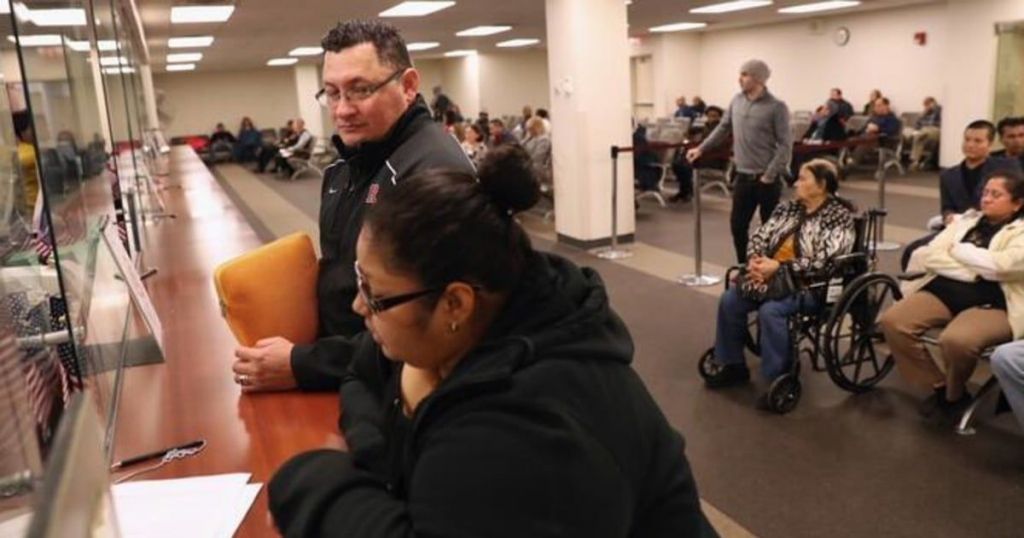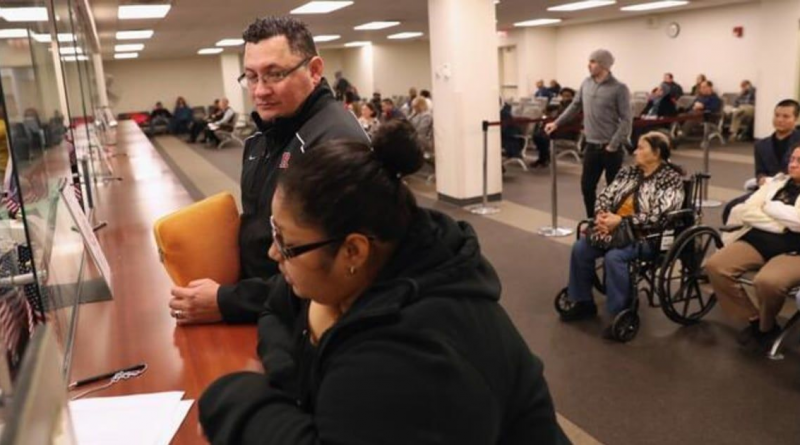USCIS aprueba cambios para facilitar la ciudadanía a migrantes con discapacidad / USCIS Form and Policy Updates Remove Barriers to Naturalization for Applicants with Disabilities
La agencia migratoria “elimina las barreras para la naturalización” para miles de solicitantes.
El Servicio de Ciudadanía e Inmigración (USCIS, por sus siglas en inglés) anunció este miércoles cambios en los trámites para obtener la ciudadanía que alivian los requisitos para los solicitantes que tienen alguna discapacidad física o mental.
La directora de la agencia, Ur M. Jaddou, dijo en un comunicado que los cambios “eliminan las barreras para la naturalización”.
La ley establece que los inmigrantes que desean convertirse en ciudadanos de Estados Unidos y tienen alguna discapacidad que les impide cumplir con los requisitos de conocimiento de inglés, historia y educación cívica pueden solicitar que se les exceptúe de esa parte del trámite.
El formulario que se utiliza para ello (N.648) debe completarlo y certificarlo un médico, según informa la agencia de noticias Efe.
USCIS tomó en cuenta los comentarios del público y adoptó cambios que, según la agencia, “reducen los requisitos para los solicitantes y para la agencia con la eliminación de preguntas y nota que ya no tienen utilidad práctica o son redundantes”.
Los cambios más notables incluyen la eliminación de las preguntas acerca de en qué forma cada discapacidad relevante afecta funciones específicas en la vida cotidiana del solicitante, incluida su capacidad para ir a trabajar o a la escuela.
En el formulario se han eliminado asimismo las fechas de diagnósticos, la descripción de la gravedad de cada discapacidad, y la pregunta de si el médico profesional que da la certificación ha tenido una relación preexistente con el o la solicitante.
Además el formulario revisado da al médico profesional la opción de indicar si la persona solicitante necesita que se le exima del juramento de fidelidad a la bandera de Estados Unidos. TELEMUNDO

USCIS Form and Policy Updates Remove Barriers to Naturalization for Applicants with Disabilities
WASHINGTON—U.S. Citizenship and Immigration Services (USCIS) today announced updated policy guidance to clarify and conform with the revision of Form N-648, Medical Certification for Disability Exceptions.
Consistent with this administration’s goal of removing barriers to legal immigration under President Biden’s Executive Order 14012, Restoring Faith in Our Legal Immigration Systems and Strengthening Integration and Inclusion Efforts for New Americans, Form N-648 has been shortened and simplified, and new telehealth guidelines further remove barriers for applicants and medical professionals. The form revisions are also in response to this administration’s goal to remove barriers for underserved populations under Executive Order 13985, Advancing Racial and Equity and Support for Underserved Communities Through the Federal Government. Changes were guided by public comments and feedback received in response to a Federal Register notice regarding the form, and a Request for Public Input (RPI), Identifying Barriers Across USCIS Benefits and Services, both published in April 2021.
“This is a wonderful example of how USCIS is listening to the public it serves in order to better address their needs, while fulfilling our responsibilities as an agency,” said USCIS Director Ur M. Jaddou. “The changes made to Form N-648 are yet another way in which USCIS is removing barriers to naturalization, in accordance with President Biden’s Executive Order 14012 and EO 13985.”
Naturalization applicants with a physical or developmental disability or mental impairment that precludes them from fulfilling the English and civics testing requirements for naturalization, may file Form N-648 to request an exception to those requirements. The form must be completed and certified by a medical professional.
Based on public comments, revisions to Form N-648 reduce burdens on applicants and the agency by eliminating questions and language that no longer have practical utility or were redundant. Most notable changes include elimination of questions about how each relevant disability affects specific functions of the applicant’s daily life, including the ability to work or go to school. The form revisions also eliminate dates of diagnosis, description of severity of each disability, and whether the certifying medical professional has a pre-existing relationship with the applicant. Further, the form revision allows the medical professional the option to indicate an applicant’s need for an oath waiver, thereby eliminating the need for separate medical documentation. The updated policy also provides guidance for telehealth medical examinations and allows USCIS to accept applicant’s Form N-648 after they file Form N-400, Application for Naturalization.
For more information on USCIS and its programs, please visit uscis.gov or follow us on Twitter


 (1) (2).jpg)


Debe estar conectado para enviar un comentario.